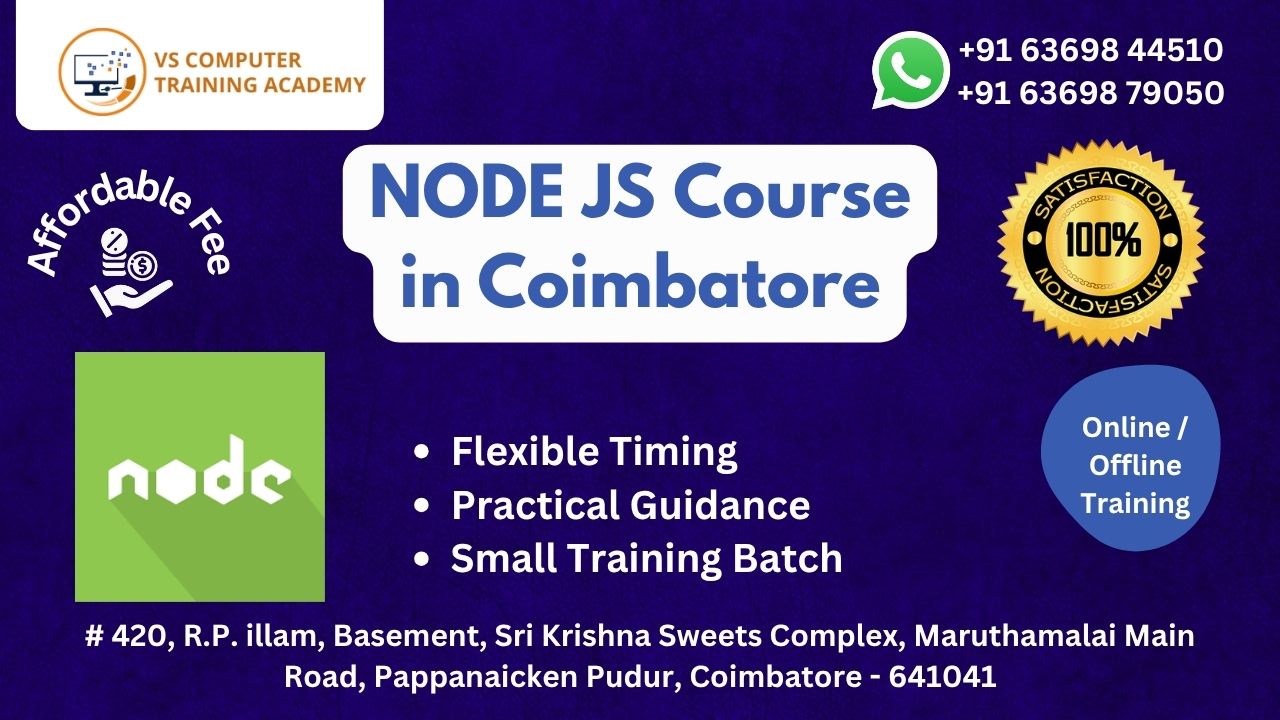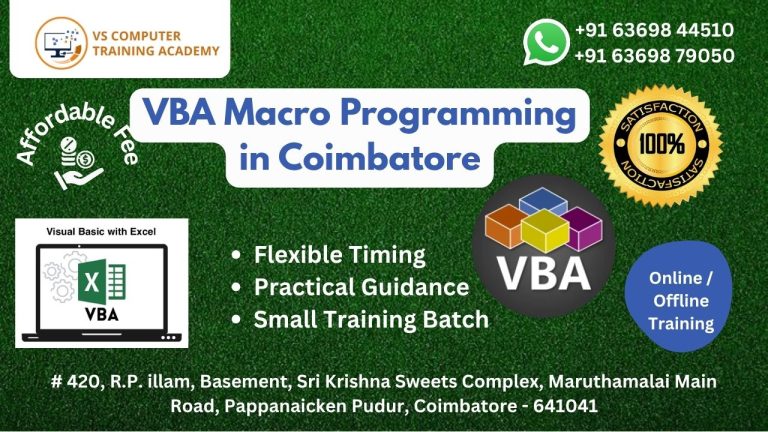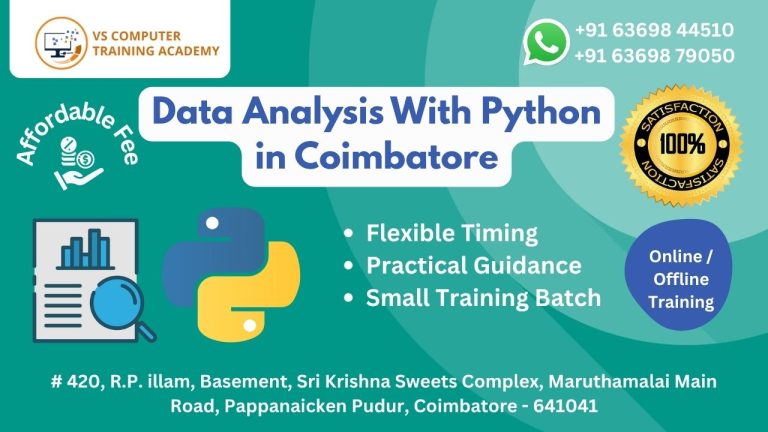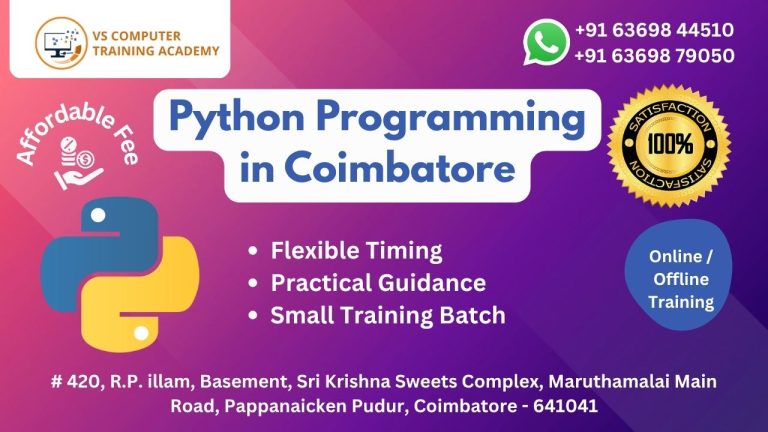NODE JS Course in Coimbatore

Master Node.js: Build Fast, Scalable, and Real-Time Applications
Node.js is a powerful, open-source runtime environment that allows developers to build fast, scalable, and high-performance web applications using JavaScript on the server side. Used by top companies like Netflix, LinkedIn, PayPal, and Uber, Node.js has become a core technology for modern web development.
Whether you’re an aspiring backend developer or a full-stack enthusiast, mastering Node.js opens up endless opportunities in today’s digital world.
Why Learn Node.js?
Node.js is transforming how web applications are built. It allows for:
Fast and non-blocking I/O operations
Real-time application development (like chat apps, live tracking, etc.)
A single language (JavaScript) for both frontend and backend
High performance with minimal server resources
Building APIs and microservices efficiently
With Node.js, you can power everything from small websites to enterprise-grade systems.
Who Should Learn Node.js?
This course is perfect for:
Frontend developers looking to become full-stack
JavaScript developers ready to explore backend technologies
Students in computer science or IT
Web developers wanting to build real-time and scalable web apps
Tech professionals switching to modern development stacks like MERN
Basic knowledge of JavaScript is recommended before starting this course.
Key Benefits of Learning Node.js
High demand for Node.js developers across industries
Essential for building full-stack (MERN/MEAN) applications
Ideal for real-time apps like chats, live dashboards, and streaming services
Supports microservices and modern backend architecture
Boosts your career as a backend or full-stack developer
Start Building with Node.js Today
Node.js is not just a backend technology – it’s a complete solution for scalable, fast, and modern web development. If you want to stay relevant in today’s tech industry, Node.js is a skill you can’t afford to ignore.
Join our Node.js training course now and take your development skills to the next level.



